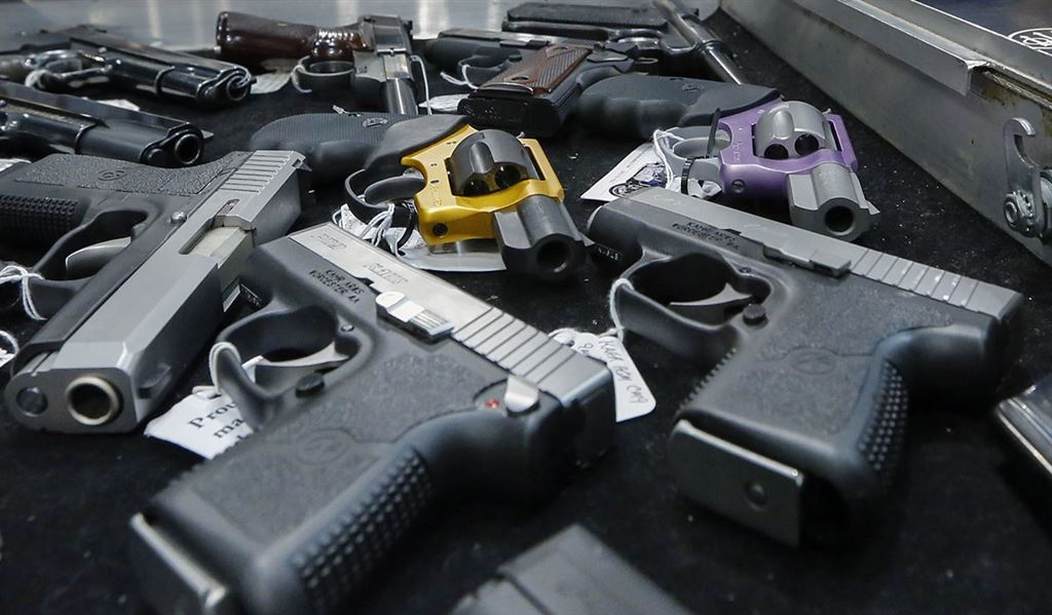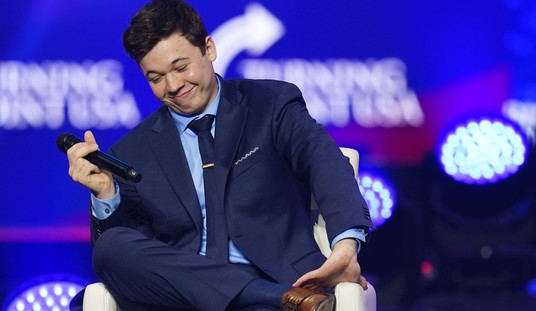I've seen a ton of people talk about gun control through the years. Most of us have, so I'm not remotely unique in that, but something I've noticed that I'm not sure if any of you all have is how myopic gun control advocates are on the issue with regard to opposition to their preferred policies.
It seems that every time the subject of violence, crime, or anything that might remotely involve a firearm in some manner, they default to, "If this is a problem, why aren't you supporting gun control?"
They can't fathom a world in which people don't actually agree that gun control even works, which we know it doesn't.
But it goes further than that.
At the science-news website, phys.org, Joe Arney of the University of Colorado at Boulder interviewed his colleague, Chris Vargo, about some new research into the politics of gun-control that Vargo believes explains why “the U.S. public as a whole doesn’t consider guns an important issue.” Per Vargo, the key problem is that Americans do not think about guns for long enough to demand stricter regulation. In the wake of a mass-murder incident, he contended, the public’s attention is held, but then swiftly recedes. Thus, he concluded, “public sentiment” never becomes “strong enough to pressure legislators into taking action.”
It would be difficult to find a more perfect example of the core flaw within the gun-control movement’s approach to politics than is provided here. Throughout the interview, both Arney and Vargo simply assume that the answer to the problem must be more gun control. They assume that the only important question is why America’s legislatures have not yet passed restrictions on our freedom.
In their estimation, the destination is set; what matters is how the media can build sufficient enthusiasm, anger or heartbreak to get the voters there. That the country might be filled with people who disagree with their monomania seems never to have occurred to them. To them, gun control is the obvious solution, and, if it hasn’t happened yet in the ways they favor, then it must be because Americans are a frivolous people who consider the criminal use of firearms to be “unimportant,” who resist calls for regulation out of childish spite and who prefer to ignore the issue than consider it seriously—none of which is true.
Author Charles C.W. Cooke notes that in the interview, Arney notes that after mass shootings, searches for things like "Second Amendment rights," "concealed carry permits," and "Sandy Hook donations" spike, but only one of those can remotely be considered gun control. The other two are, as Cooke notes, the exact opposite of it.
The truth is that those are rejected outright by the average anti-gunner on an almost subconscious level. They can't fathom the possibility that someone disagrees with them, particularly out of a sense of principle.
Gun control is one of those issues that many people attach to as a positional good. What I mean is that it's a position they figure all good people hold. After all, who can be opposed to saving lives, which is exactly how they view gun control. Since they figure that most people are good, they figure that most people want gun control. If they don't want it, it's because they haven't been sufficiently outraged enough to put guns at the top of their political wish list.
The problem with this thinking--which Cooke argues isn't really "thinking" per se, and he's not wrong--is that it leaves absolutely no room for understanding the other side of things.
It also means that they tune out literally every bit of evidence showing that gun control doesn't work. Their positional good hinges on it working and so they can't process any information to the contrary.
Which is why, at the end of the day, they automatically assume we all believe gun control works. They can't comprehend that anyone but an absolute monster could think otherwise.








Join the conversation as a VIP Member